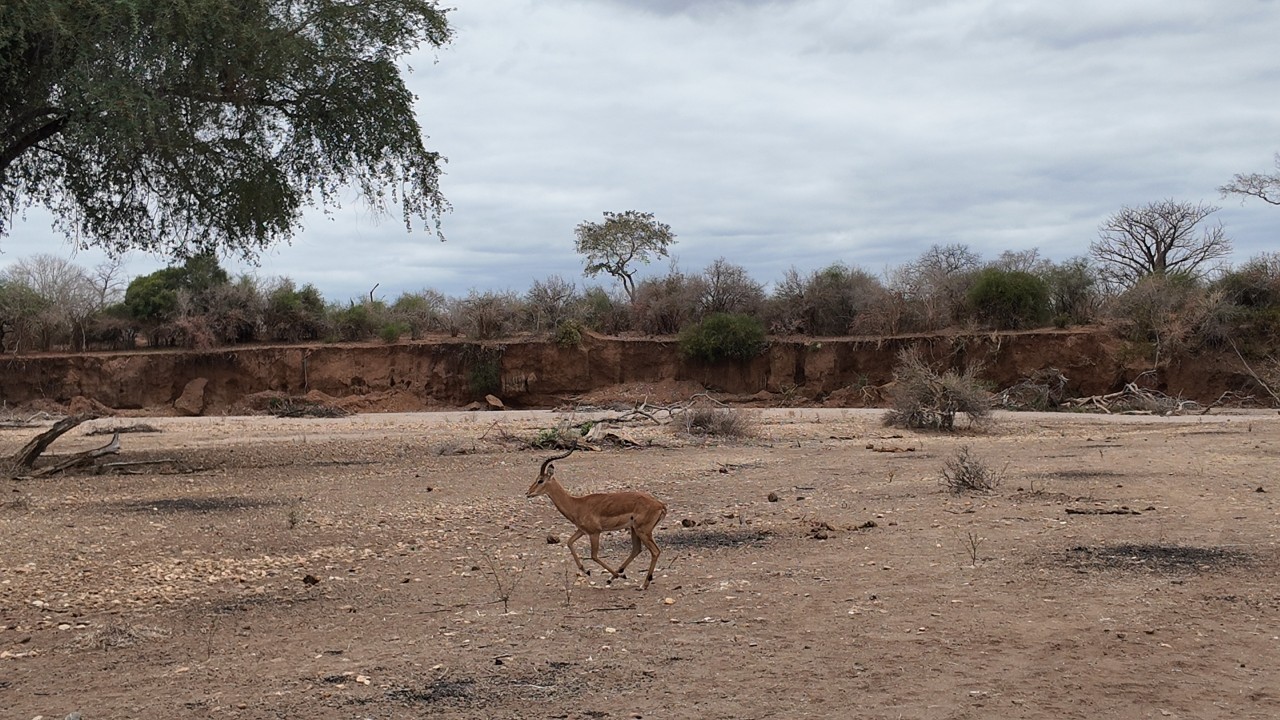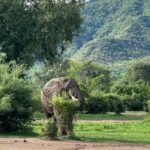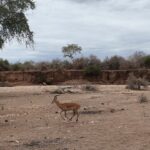When travelers dream of Africa, names like Kenya, South Africa, or Tanzania often come to mind. Yet tucked away in the heart of Southern Africa lies a destination so rich in natural beauty, wildlife, and cultural depth that it quietly outshines them all—Zambia.
Often overlooked and delightfully underexplored, Zambia is a land of thundering waterfalls, vast savannahs, and warm-hearted people. It’s a place where nature still rules, where safaris are raw and wild, and where every experience feels untouched and authentic. For those in search of true adventure—without the crowds—Zambia is Africa’s best kept secret.
This article serves as a travel guide to Zambia, helping you explore the country’s top attractions and unforgettable experiences.
In this article, we’ll reveal what makes Zambia so special and why now is the perfect time to uncover its magic before the world catches on.
Introduction to Zambia’s Hidden Allure
Nestled in the heart of Southern Africa, Zambia is a country that captivates with its untamed beauty and vibrant spirit. From the thunderous spectacle of Victoria Falls—one of the world’s most iconic natural wonders—to the tranquil expanses of the Luangwa Valley, Zambia offers a tapestry of experiences that few destinations in Africa can match. This is a land where wildlife roams free, adventure beckons at every turn, and culture is woven into daily life.
Exploring Zambia means immersing yourself in a world where tradition and modernity coexist harmoniously. Whether you’re embarking on a thrilling safari, discovering the rhythms of local music and dance, or simply soaking in the breathtaking landscapes, every moment in Zambia is infused with a sense of wonder. The country’s warm hospitality and genuine smiles make every traveler feel at home, turning each visit into a lasting memory.
For those seeking true adventure, rich culture, and the raw beauty of Africa, Zambia stands as a hidden gem waiting to be explored. It’s a destination where every journey is an invitation to experience the extraordinary.
A Land of Contrasts: Geography and Climate
Zambia’s allure is deeply rooted in its remarkable geography and climate. Situated in South Central Africa, this landlocked country shares its borders with eight other countries, including the Democratic Republic of the Congo, Tanzania, Zimbabwe, Botswana, and more—making it a crossroads of cultures and landscapes in central Africa.
The country’s terrain is a striking mosaic of rolling savannas, lush forests, and dramatic river valleys. The mighty Zambezi River carves its way through the land, providing a lifeline for both wildlife and people, and serving as a playground for water sports and unforgettable game viewing. Zambia’s national parks—such as the renowned South Luangwa National Park and the vast Kafue National Park—are celebrated for their pristine wilderness and incredible biodiversity, drawing safari enthusiasts from around the world.
Zambia enjoys a moderate climate, shaped by three distinct seasons. The cool dry season, from May to August, offers crisp mornings and comfortable days—perfect for walking safaris and exploring the bush. As the hot dry season arrives from September to November, wildlife congregates around rivers and waterholes, making it an ideal time for safaris and spotting animals in their natural habitat. The rainy season, stretching from December to April, transforms the landscape into a lush, green paradise, breathing new life into the country’s flora and fauna.
At the heart of it all lies Lusaka, the bustling capital city in the south-central region, serving as a gateway to Zambia’s many wonders. Whether you’re venturing into the wilds of Kafue National Park, drifting along the Zambezi River, or exploring the vibrant markets of Lusaka, Zambia’s diverse geography and climate promise adventure and discovery at every turn.
Unmatched Natural Wonders
Zambia is a natural masterpiece, home to some of the most spectacular landscapes in Africa—yet few know just how awe-inspiring it truly is. At the heart of this beauty lies Victoria Falls, one of the world’s largest waterfalls and one of the Seven Natural Wonders of the World. Locally known as Mosi-oa-Tunya, or “The Smoke That Thunders,” the falls are a breathtaking curtain of water crashing down into the Zambezi Gorge, visible and audible from miles away. Zambia’s southern border is defined by the Zambezi River and Victoria Falls, marking the boundary with neighboring countries such as Namibia, Botswana, and Zimbabwe.
Zambia’s hydrography is equally remarkable, with the Zambezi basin serving as a major drainage area that covers much of the central, western, and southern parts of the country. The Kafue River, a significant tributary of the Zambezi, plays a crucial role in river navigation, mineral discovery, and the regional ecosystem. Among Zambia’s major lakes, Lake Tanganyika stands out as one of the largest and deepest freshwater lakes in the world, renowned for its biodiversity and activities like scuba diving and fishing. Lake Bangweulu is celebrated for its natural beauty, remoteness, and appeal to adventurous travelers seeking unspoiled destinations. Lake Mweru holds regional significance, historically serving as a key point in trade routes and cultural connections. Lake Kariba, the largest man-made lake in Africa, is a popular holiday destination known for water sports, resorts, and its proximity to Victoria Falls and the Zambezi River.
What sets Zambia apart is how pristine and peaceful its nature still is. Unlike more commercialized destinations, here you’ll find unspoiled wilderness, fewer crowds, and a deeper connection with the land. It’s nature in its purest form—raw, powerful, and humbling.
The Birthplace of the Walking Safari
If you want to experience the African wilderness with all your senses alive, Zambia is where it all began. The country is proudly known as the birthplace of the walking safari, a unique way of exploring the bush on foot—up close and personal with nature.
This incredible tradition started in South Luangwa National Park, pioneered by legendary conservationist Norman Carr. The Luangwa rivers are key locations for diverse safari experiences, offering not only walking safaris but also canoe safaris and scenic wildlife viewing along their banks. Unlike vehicle safaris, walking safaris allow you to truly feel the rhythm of the wild—hearing the crunch of dry leaves underfoot, spotting fresh animal tracks, and learning how to read the landscape from expert guides.
Led by highly trained scouts and armed rangers, these treks offer a safe yet thrilling way to encounter wildlife, from elephants and zebras to elusive leopards. It’s not just about the big game—it’s about discovering the small wonders too: medicinal plants, insects, and bird calls.
Walking safaris in Zambia aren’t just a tourist activity—they’re a rite of passage for those who seek deeper, slower, and more meaningful travel experiences in Africa’s untamed heart.
Abundant Wildlife and Untamed Safaris
Zambia offers one of the most authentic safari experiences in Africa—wild, uncrowded, and deeply immersive. With over 20 national parks and game management areas, the country is a true haven for wildlife enthusiasts.
Among the most renowned are South Luangwa, Lower Zambezi, and Kafue National Parks. South Luangwa, in particular, is known for its dense concentrations of game, including leopards, elephants, lions, and buffaloes. Beyond these iconic species, visitors also have the chance to spot other animals, highlighting the remarkable diversity of Zambia’s fauna. The Lower Zambezi National Park delivers striking scenery, with its floodplains and escarpments attracting everything from hippos to crocodiles, and countless bird species.
In Kafue—one of Africa’s largest and oldest parks—you’ll find rare species like the African wild dog, cheetah, and the sable antelope. It’s a paradise for photographers and seasoned safari-goers looking to escape the tourist-heavy routes found elsewhere on the continent.
During the wet season, wildlife often moves to higher ground as the vegetation becomes lush and visibility is reduced, making these areas excellent for game viewing. What makes Zambia’s safaris truly untamed is the low tourist density. Here, it’s not unusual to have an entire game drive or boat trip to yourself. It’s just you, the wilderness, and the thrill of discovery.
Rich Cultural Heritage and Warm Hospitality
Zambia’s soul lies not only in its landscapes but also in its people and traditions. Home to over 70 ethnic groups, the country offers a cultural tapestry that is as diverse as it is vibrant. Each community brings its own language, music, dances, and festivals, creating an authentic cultural experience for curious travelers. Traditional ceremonies are a key aspect of Zambia’s cultural heritage, involving music, dance, and rituals that reinforce community bonds and preserve indigenous practices.
One of the most iconic traditions is the Kuomboka Ceremony of the Lozi people—a majestic royal migration across the Zambezi floodplains, celebrated with rhythmic drumming, ceremonial attire, and colorful canoes. It’s more than a performance; it’s a living history passed down through generations. The western provinces are especially known for their unique traditional ceremonies and artistic skills, which set them apart from other regions.
Visitors are often struck by the genuine warmth and hospitality of Zambians. Most Zambians are known for their warmth, friendliness, and strong sense of community. Whether in rural villages or urban centers, you’ll be greeted with smiles, open arms, and a willingness to share stories and traditions.
From handcrafted baskets and wood carvings to delicious local dishes like nshima and ifisashi, Zambia’s culture is best experienced firsthand—with a local guide, a homestay, or simply a chat with a friendly stranger.
Adventure Beyond the Ordinary
For thrill-seekers and nature lovers alike, Zambia delivers adventure with a wild heart. This is not your typical vacation—it’s an invitation to push boundaries and create unforgettable memories in nature’s playground.
Start with a heart-pounding bungee jump off the Victoria Falls Bridge—plummeting 111 meters with the thunder of the falls in your ears. Prefer water? Try white-water rafting down the mighty Zambezi River, considered one of the best rafting experiences in the world. The best part is that you can enjoy several adrenaline-filled activities, such as bungee jumping and white-water rafting, all within the same day, making it easy to maximize your adventure.
Zambia also offers microlight flights over Victoria Falls, giving you a bird’s-eye view of one of the most dramatic landscapes on Earth. For a more grounded experience, take a canoe safari through the channels of the Lower Zambezi, where hippos, elephants, and crocodiles are part of your daily journey.
For the quieter adventurer, Zambia is a paradise for fishing and birdwatching. The country boasts over 750 bird species, and its rivers are home to the fierce tigerfish, a favorite among anglers.
Every adventure in Zambia is infused with a sense of raw, natural wonder—far from the crowds, and always close to the wild. Come and explore Zambia’s wild adventure opportunities.
Commitment to Sustainable Tourism
Zambia isn’t just about unforgettable experiences—it’s about making a difference while you travel. The country has embraced sustainable tourism as a core value, ensuring that tourism benefits both the environment and local communities.
Many of Zambia’s top lodges and safari camps are eco-friendly, built with natural materials and run on solar power. These establishments support conservation projects, protect endangered species, and limit their environmental footprint.
One of Zambia’s strongest points is its support for community-based tourism. In many areas, local communities are directly involved in tourism operations—working as guides, hosts, artisans, and conservation stewards. This not only creates jobs but also fosters a strong sense of ownership and pride in preserving natural resources. Community-based tourism initiatives benefit both rural areas, where traditional culture is preserved and shared with visitors, and urban areas, where tourism supports economic development and infrastructure growth.
Conservation organizations and tour operators in Zambia also play a vital role in protecting wildlife. Initiatives like anti-poaching patrols, wildlife education programs, and community development projects are funded through responsible tourism practices.
By visiting Zambia, you’re not just exploring a destination—you’re supporting a country committed to protecting its natural heritage and empowering its people.
Safe, Peaceful, and Welcoming
In a world where safety can be a concern for travelers, Zambia offers a refreshing sense of peace and security. The country is known for its political stability, low crime rates, and a general atmosphere of calm that allows visitors to relax and fully enjoy their experience.
Zambia’s reputation as one of Africa’s safest countries to travel is well-earned. Whether you’re in the bustling streets of Lusaka or deep in the heart of a national park, you’re likely to be met with friendly smiles and helpful locals.
Communication is easy, too. English is the official language, making travel logistics, directions, and cultural exchanges more accessible for international visitors.
Getting around the country is increasingly convenient, with international airports in Lusaka and Livingstone, improved road networks, and regional connections to neighboring countries. Tour operators and travel agencies are professional and well-regulated, ensuring safe and reliable experiences.
Zambia doesn’t just welcome tourists—it makes them feel at home.
Still Off the Beaten Path – and That’s the Magic
While many African destinations are bursting at the seams with tourists, Zambia remains a peaceful refuge for the discerning traveler. Its quiet charm lies in the fact that it is still off the mainstream travel radar, offering a rare sense of discovery and authenticity.
Unlike more commercialized safari hotspots like Kenya, South Africa, or Tanzania, Zambia delivers wildlife experiences without the crowds. You won’t be jostling for space at a lion sighting or queuing to take the perfect shot of Victoria Falls. Here, the luxury is in the space, the silence, and the sense that you’ve stumbled upon something truly special.
This “best kept secret” status means you’ll enjoy more personal interactions with locals, more intimate encounters with nature, and a stronger connection to the land. It’s the kind of destination seasoned travelers dream about—untouched, unfiltered, and unforgettable.
Zambia’s magic lies in its humility. It doesn’t shout; it whispers—and those who listen are richly rewarded.
Conclusion
Zambia may not be the first name that comes to mind when planning an African adventure—but perhaps that’s exactly why it should be. With its awe-inspiring natural wonders, legendary walking safaris, thriving wildlife, rich cultures, and genuine hospitality, Zambia offers something truly rare: authenticity without overexposure.
Zambian history is a rich tapestry of cultural and political change, from early settlements to the arrival of European traders via the Indian Ocean. The country was known as Northern Rhodesia during the colonial era before gaining independence as a Christian nation in October 1964. Key political milestones, including significant events in January, have shaped its national identity. Zambia’s average life expectancy reflects ongoing demographic trends. The legacy of David Livingstone, the explorer who gave his name to the town of Livingstone after describing Victoria Falls, remains influential. Geographically, the country lies in south-central Africa, with much of its land elevated above sea level, especially in northern Zambia, known for its lakes, woodlands, and highlands. Towns and town life, from the capital Lusaka to regional centers, play a vital role in Zambia’s development and cultural landscape.
It’s a country where the wilderness still reigns, where travel feels personal, and where every journey leaves a lasting impact—on both the visitor and the land. Whether you’re chasing waterfalls, walking with elephants, or sharing stories around a campfire, Zambia delivers an experience that’s not only unforgettable, but deeply transformative.
So if you’re looking for a destination that’s wild yet welcoming, thrilling yet tranquil, adventurous yet responsible—Zambia is Africa’s best kept secret. But it won’t be a secret for long.






1 Comment
The sentences flow with ease, yet carry weight. There is a balance between momentum and reflection, creating a reading experience both engaging and contemplative.